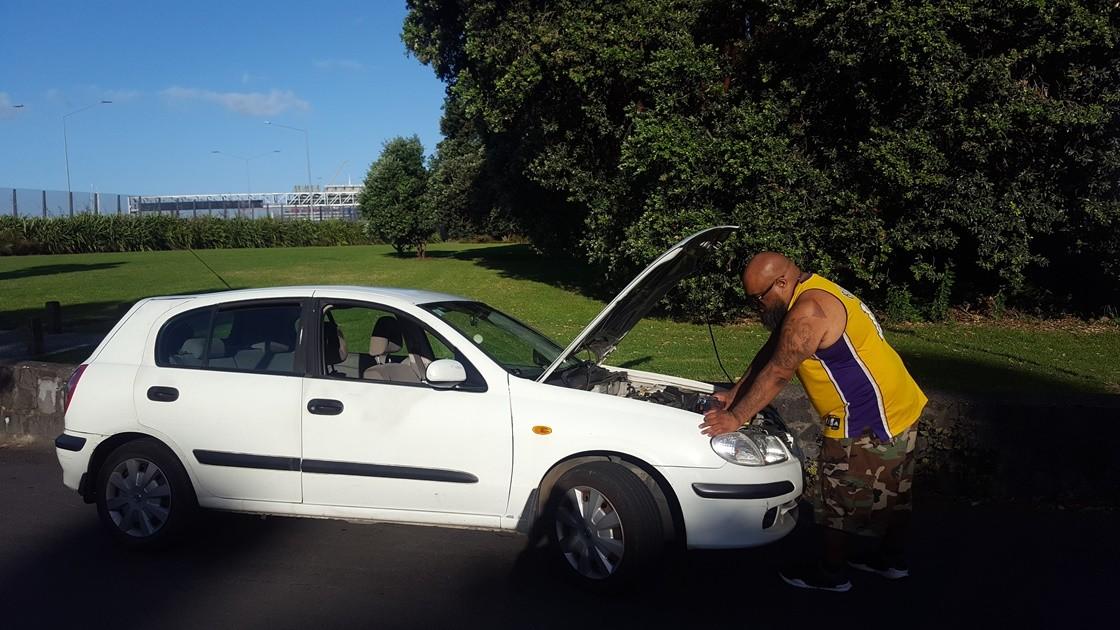
The school holidays are almost here, a perfect time to hit the highways to explore.
But a relaxing break will be anything but, if you run into trouble with a car load of kids. Here's what to do to avoid a breakdown in every sense!
Check the petrol gauge
It sounds so simple but running out of gas is a common reason for a breakdown.
"A grumpy husband, two kids, a dog and a car without gas in the middle of nowhere. Not the best start to our holiday," says Aucklander Lisa Martin, who was caught out over the summer while travelling around Northland. "I was so embarrassed when we had to call for help."
Drivers forget about traffic - like rush hour on the motorway - where the car uses a lot of fuel idling but there's no petrol station nearby.
The other main causes of breakdowns are flat batteries, overheating and tyre punctures.
Phil Jackson, National Training Manager for Carter's Tyres, says preparation before setting off on a journey is key.

Get a quick car check-up
Drivers can visit Carter's Tyres for a quick safety check, or to pick up some DIY tips and to utilise their free battery and tyre pressure checks.
"Jacking a car up sounds simple, but it's dangerous. If people pop in, we’re more than happy to show them how to do it properly."
Andrew Knackstedt, from the New Zealand Transport Agency, says that regular servicing and maintenance are the best preventative measures people can take to avoid being caught out by mechanical trouble.
Many drivers don't realise the strain they're putting on their cars, especially if the car has passengers, luggage, and something on the towbar.
Tyres should have the Warrant of Fitness required tread depth - 1.5mm. Drivers can easily check this at home by putting a match upside down into the tread - if the match head is visible, the tyres are too worn.
Checking the tyre pressure also helps, and drivers can open their door to find a manufacturer's placard with the right amount of pounds for the vehicle, or Carter's Tyres offers a free Tyre Pressure check.
"Most of the pressure readings at the garages aren't particularly accurate - they could be five to six pounds off," says Phil Jackson
Charging devices like cellphones, GPS systems, or tablets to entertain the kids, are common factors in draining the battery too.
"Batteries have a life, and when the vehicle takes longer to start, that’s when it’s reaching the end. Pre-trip, Carter's Tyres will check your battery for free."
Lift up the bonnet
An overheating engine can be avoided by regularly checking the fluids which keep the engine cool. Drivers can look at the levels compared to the minimum and maximum lines, and pull out the oil dipstick too. Clearing the radiator of any debris also allows air to flow freely.
Brian Simmons, VTNZ Technical Consultant, advises that drivers keep an eye on the vehicle along the trip.
"Walk around the vehicle at each comfort stop to check for unusual smells, smoke and damage, along with having oil and water checked."

Keep a car safety kit
Mr Knackstedt also advises to be prepared - if the car starts driving abnormally, pull over somewhere safe, and put the hazard lights on.
"In summer months it’s a good idea to carry extra water in your vehicle, and in winter carry warm clothes in the event of a breakdown," he says.
Mr Jackson suggests keeping a safety triangle or high-vis vest, basic tools, and a flashlight in that kit, and reiterates to prioritise safety.
"Never turn your back to the oncoming traffic, and exit out of the passenger side."
This article was created for Carter's Tyres.
